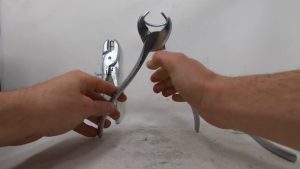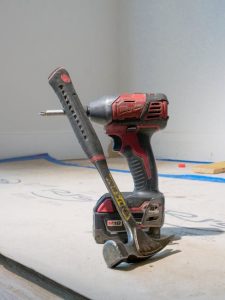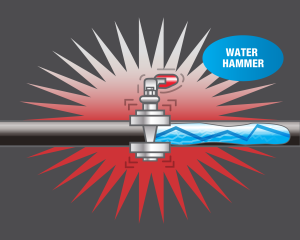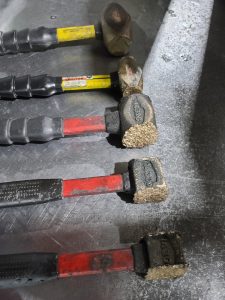Imagine this: you’re standing in front of your sink, frustrated, as water refuses to drain. You don’t have a plumber’s snake on hand, and calling a professional seems like an expensive hassle.
What if there was a simple solution right within your reach? You can tackle this common household problem without fancy tools or wasting time. Discover how to clean a drain effectively using items you already have at home. By the end of this article, you’ll not only save money but gain the satisfaction of solving the problem yourself.
Ready to transform your clogged drain into a free-flowing marvel? Dive in and learn the tricks that make drain cleaning a breeze.

Credit: www.familyhandyman.com
Common Causes Of Clogged Drains
Clogged drains can be a real headache, especially when water starts backing up unexpectedly. Understanding the reasons behind these blockages can help you tackle the issue head-on without needing a plumber’s snake. Have you ever wondered what might be lurking in those pipes? Let’s dive into some common culprits that cause drains to clog.
Accumulation Of Hair And Soap Scum
Hair and soap scum are notorious for clogging bathroom drains. When you wash your hair, strands inevitably escape, swirling down the drain. Combine this with soap residue, and you have a sticky mess that builds up over time. Have you noticed your shower draining slower than usual? This could be the reason.
A simple tip is to use a drain cover to catch hair before it makes its way down. Regularly cleaning the cover can prevent future blockages. Have you tried this yet?
Food Particles And Grease Build-up
Kitchen drains often fall victim to food particles and grease. It’s easy to wash away leftovers, thinking the water will take care of it. But tiny bits can accumulate and create a stubborn blockage. Ever cooked a meal and noticed the water pooling in your sink? That greasy residue might be the culprit.
Consider wiping pans with a paper towel before washing. This small step can make a big difference in preventing clogs. How often do you find yourself dealing with greasy buildup?
Mineral Deposits And Hard Water
Hard water can leave mineral deposits in your pipes. Over time, these deposits narrow the passage, leading to slow drainage. Does your area have hard water? If so, your drains might be at risk.
Installing a water softener can help reduce mineral buildup. It’s an investment that pays off in maintaining healthy pipes. Have you considered this option for your home?
Understanding these common causes can empower you to take preventative steps. The next time you face a slow drain, remember these insights. What proactive measures will you implement in your home?

Credit: www.wikihow.com
Essential Tools And Materials
Cleaning a drain without a snake requires basic tools and materials. A plunger, baking soda, vinegar, and hot water can effectively clear clogs. These items are usually found at home and offer a simple solution to maintain clear drains.
When you’re dealing with a clogged drain and don’t have a plumber’s snake on hand, the right tools and materials can make all the difference. You might be surprised to learn that many items you already have at home can be used to tackle a blocked drain effectively. Understanding what you need and how to use it can save you time, money, and frustration.
Household Items For Drain Cleaning
You might wonder if your kitchen or bathroom holds the key to clearing your drain. Baking soda and vinegar are a powerful duo. Just like a homemade science experiment, these items can create a fizzing reaction to help break down clogs. A plunger is another household item that’s often underestimated. With the right technique, it can be as effective as a professional tool. Ensure you have a good seal and use steady pressure to dislodge the blockage. If you have a wire coat hanger, you’re in luck. Straighten it out and fashion a small hook at the end. This can help fish out hair and debris from your drain. Have you ever tried using a hanger this way? It might surprise you how effective it can be.
Natural Cleaning Agents
Commercial drain cleaners are full of harsh chemicals. You might prefer to avoid them for environmental and safety reasons. Lemon juice combined with baking soda can be an excellent natural alternative. The acid from the lemon helps break down grime while leaving a fresh scent. Salt and hot water make another great combination. Pour salt down the drain, followed by a kettle of boiling water. This can help dissolve grease and other substances. Could this simple method be the eco-friendly solution you’ve been looking for?
Protective Gear And Safety Tips
Safety should never be overlooked. Even with natural agents, it’s wise to wear rubber gloves to protect your skin. This prevents direct contact with any unpleasant substances lurking in your drain. Goggles can protect your eyes from splashes, especially if you’re using a plunger or pouring hot water. It’s a small step that can make a big difference. Have you ever considered how vulnerable your eyes are during these tasks? Ensure your workspace is well-ventilated, particularly when using vinegar or lemon juice. The fumes, though not harmful, can be strong. Are you taking the right precautions to keep your environment safe while you tackle that stubborn drain?
Boiling Water Method
Clogged drains can disrupt daily life. The boiling water method offers a simple solution. It’s an easy technique for minor clogs. No special tools or skills are needed. Just water and heat.
When To Use Boiling Water
This method works best for minor clogs. It clears slow-draining sinks and showers. Use it when water drains, but slowly. It’s effective for clogs from soap or grease. Avoid it for drains with plastic pipes.
Step-by-step Guide
Boil a kettle of water. The hotter, the better. Pour the boiling water down the drain. Do it slowly to avoid splashes.
Wait for a few minutes. Test the drain with tap water. If needed, repeat the process. This method might need a few tries.
Baking Soda And Vinegar Solution
Drains can become clogged over time. Hair, soap scum, and food particles build up. But there’s a simple fix. The baking soda and vinegar solution can help. It’s a natural way to unclog drains without a snake.
Chemical Reaction Explained
Baking soda is a base. Vinegar is an acid. Mixing them creates a reaction. This reaction produces bubbles. The bubbles help break down clogs. They loosen debris in the drain. It’s a safe and effective method.
Application Process
First, pour hot water down the drain. This helps clear initial debris. Next, add half a cup of baking soda. Let it sit for a few minutes. Then, pour a cup of vinegar into the drain. You’ll see the fizzing action. Wait for 10-15 minutes. Finish with more hot water. This flushes away remaining particles. Repeat if necessary for stubborn clogs.
Salt And Hot Water Technique
Have you ever been frustrated with a clogged drain and no snake in sight? The salt and hot water technique might be your unexpected savior. This method is simple, effective, and uses items you likely already have at home. It’s a great alternative when you want to avoid harsh chemicals or don’t have a snake tool handy. Let’s dive into how this easy technique can help you tackle those pesky drain blockages.
Benefits Of Salt In Drain Cleaning
Salt isn’t just for seasoning your food; it has surprising cleaning properties. It’s abrasive, which helps scrub away residue stuck to your pipes. Salt can also help break down soap scum and grease, common culprits of drain clogs.
Moreover, salt has disinfectant qualities. It’s excellent for inhibiting bacteria growth, which can cause foul odors. It’s a natural, non-toxic option that can be safer for your home environment.
Instructions For Best Results
Ready to try the salt and hot water technique? Here’s how:
- Begin by boiling a kettle of water. You need it piping hot.
- Pour about half a cup of salt down the drain. You can use table salt or any salt you have handy.
- Carefully pour the hot water into the drain right after the salt. Be cautious to avoid splashes.
Let the mixture sit in the drain for about 15 minutes. During this time, consider what might be causing your clogs. Is it hair, grease, or something else?
After 15 minutes, pour more hot water to flush out the loosened debris. Notice how the water flows; it should be smoother now. If it’s still slow, repeat the process.
This technique is not just about clearing clogs; it’s about understanding your drain better. Why not make it a routine to keep your drains fresh and clean? You might find it a surprisingly easy habit that saves you time and stress.
Plunger Usage For Drains
Cleaning a drain can be a hassle without a snake. Fortunately, a plunger is an effective tool for unclogging drains. Using a plunger helps remove blockages without damaging pipes. It’s a simple tool that can save you time and money. Let’s explore how to use a plunger effectively for this task.
Choosing The Right Plunger
Not all plungers are the same. Cup plungers work well for sinks and tubs. They have a flat rubber cup. This allows them to create a strong seal on flat surfaces. Flange plungers are best for toilets. They have an extra flap for a better seal. Choose the right plunger for the job.
Effective Plunging Methods
Start by filling the sink or tub with enough water. This helps create a good seal. Place the plunger over the drain. Ensure the cup covers the hole completely. Push down gently to create a seal. Then, pull up quickly. Repeat this motion several times. Check if the water drains smoothly. Repeat the process if needed.
Dish Detergent And Hot Water
Dish detergent mixed with hot water can clear drains effectively. Pour the mixture down the drain to dissolve grease and debris. Repeat if necessary for stubborn clogs.
Cleaning a drain without a snake might seem challenging, but you’d be surprised at how effective dish detergent and hot water can be. This simple solution harnesses the power of everyday items found in your kitchen. It’s a method that not only saves money but also spares you the hassle of dealing with bulky plumbing tools. So, why not give it a try? You might just find yourself pleasantly surprised by its efficiency.
Breaking Down Grease And Grime
Grease and grime are often the culprits behind clogged drains. These stubborn substances can build up over time, creating a mess that’s hard to tackle. Dish detergent, known for its grease-fighting ability, can help break down these tough residues. When mixed with hot water, it becomes even more powerful. This combination targets the greasy buildup, helping to dissolve it and clear the way for water flow.
Step-by-step Instructions
To start, gather your materials: dish detergent and a kettle or pot for boiling water. Ensure you have enough detergent for a generous squeeze. 1. Boil Water: Begin by boiling a kettle or pot of water. You’ll need about 4-6 cups. 2. Add Detergent: Once the water is boiling, pour a generous squeeze of dish detergent directly into the drain. 3. Pour Hot Water: Carefully pour the hot water into the drain. This helps the detergent penetrate and break down the grime. 4. Wait: Allow the mixture to sit for about 10-15 minutes. This gives the detergent time to work its magic. 5. Rinse: After waiting, run hot tap water down the drain for a few minutes. This flushes out any remaining debris. Have you tried this method before? If not, it’s worth giving it a shot. You might find it to be a surprisingly effective way to maintain your drains.
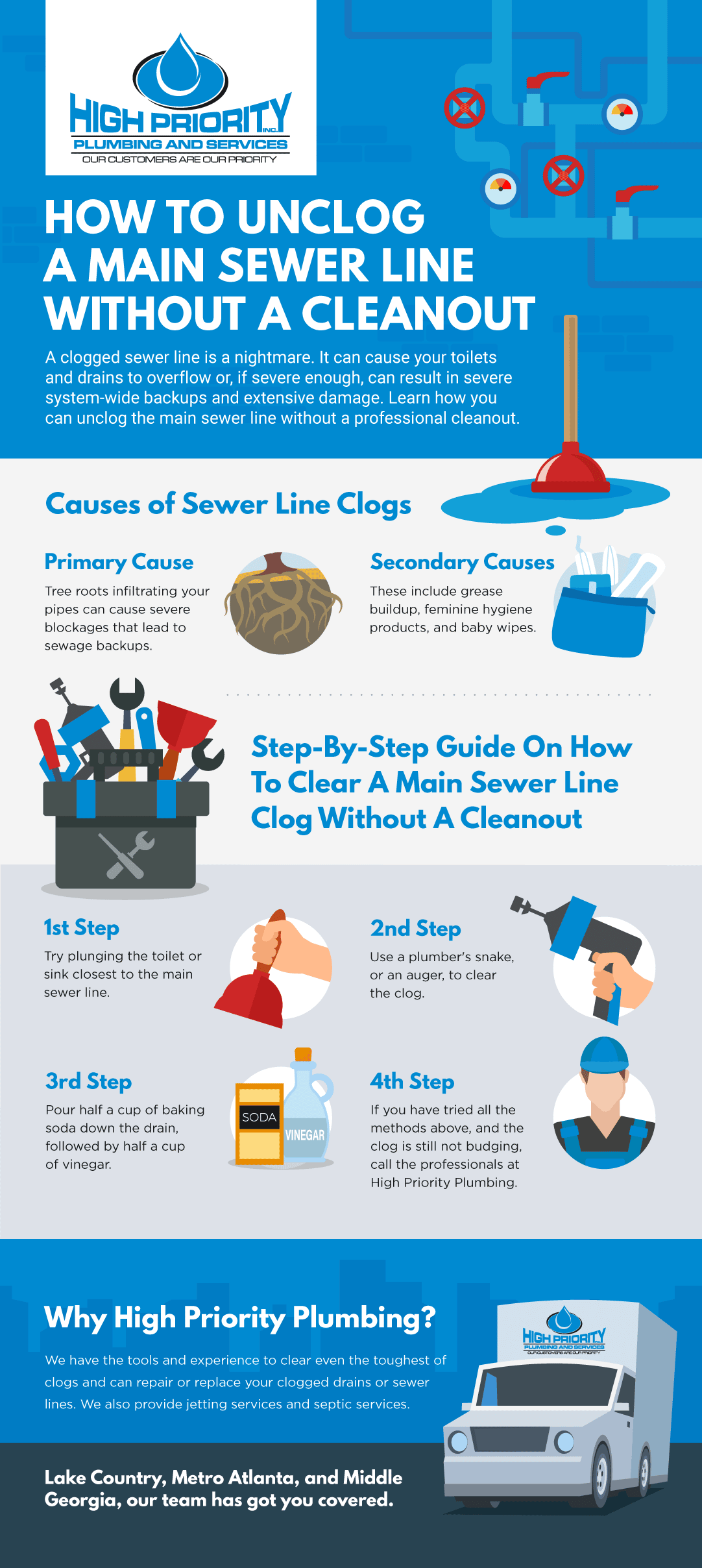
Credit: highpriorityplumbing.com
Preventive Measures
Clearing a drain without a snake involves simple steps. Use baking soda and vinegar to break down clogs. Pour hot water to flush away debris. Regular cleaning prevents blockages and keeps your drains flowing smoothly.
Cleaning your drain without using a snake can be an effective way to maintain your plumbing system. But what if you could prevent clogs altogether? Implementing preventive measures can save you time and hassle. It’s all about adopting regular habits that keep your drains flowing smoothly. Let’s dive into some practical tips that can help you avoid the inconvenience of a clogged drain.
Regular Maintenance Tips
Regular maintenance is your best ally in preventing drain clogs. It’s like giving your drain a little bit of TLC. A simple yet effective method is pouring hot water down your drain once a week. This helps to clear out any small debris that might be lingering. You might be surprised how much difference a little vigilance can make. Another easy tip is using a mixture of baking soda and vinegar. Pour half a cup of baking soda followed by half a cup of vinegar down the drain. Let it sit for about 15 minutes, then rinse with hot water. This natural cleaner can break down residues before they become a problem.
Avoiding Common Drain Clogging Habits
Many clogs are caused by habits we don’t even think about. Ever rinsed cooking grease down the kitchen sink? This can solidify and cause blockages. Instead, pour grease into a container and dispose of it in the trash. It’s a small change that can prevent big issues. Hair is another culprit, especially in bathroom drains. Using a drain cover can catch hair before it enters the plumbing. It’s cheap, effective, and easy to clean. Consider your drain as a part of your home that needs attention. Think about the substances you allow to flow through it. Ask yourself, “Is this going to cause a clog?” Being mindful of these habits can save you from dealing with a messy situation later. In what ways do you maintain your drains? Do you have any tips or tricks that work wonders? Share your thoughts and let’s keep the conversation going!
Frequently Asked Questions
How To Unclog A Drain Naturally?
To unclog a drain naturally, use baking soda and vinegar. Pour half a cup of baking soda followed by a cup of vinegar. Let it fizz for 15 minutes, then flush with hot water. This eco-friendly method breaks down buildup and keeps drains clear without chemicals.
Can Boiling Water Clean A Drain?
Yes, boiling water can help clean drains. It dissolves soap scum, grease, and debris effectively. Pour boiling water slowly into the drain. Repeat if necessary. Ensure pipes are heat-resistant. This simple method is often effective for minor clogs and maintenance.
What Household Items Clear Drains?
Baking soda, vinegar, and salt clear drains. Mix half a cup of baking soda with half a cup of salt. Pour into the drain, followed by hot water. These items break down clogs, freshen drains, and are safe for pipes, offering a chemical-free solution.
Is Salt Effective In Cleaning Drains?
Salt is effective in cleaning drains. Its abrasive nature helps dislodge buildup. Combine with hot water for best results. Pour a cup of salt followed by boiling water. This method is safe, natural, and helps maintain clean pipes without harsh chemicals.
Conclusion
Clearing a drain without a snake is quite manageable. Basic tools and natural cleaners can do wonders. Baking soda and vinegar work well for minor clogs. Hot water helps loosen debris. A plunger can provide extra force if needed. Remember to clean drain covers regularly.
This prevents buildup and future blockages. Regular maintenance ensures smooth water flow. It’s simple, cost-effective, and eco-friendly. No need for harsh chemicals or expensive tools. With these tips, keeping drains clean becomes easy. Make drain cleaning a routine task. This way, you avoid bigger plumbing issues later.



